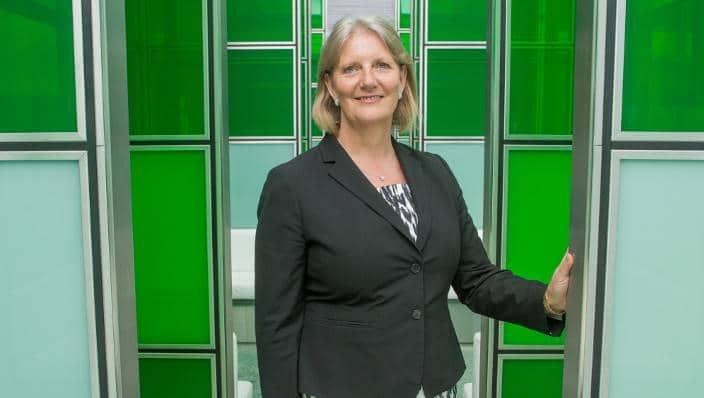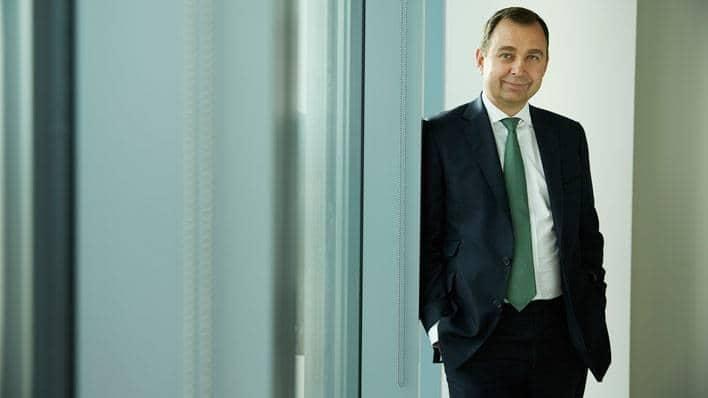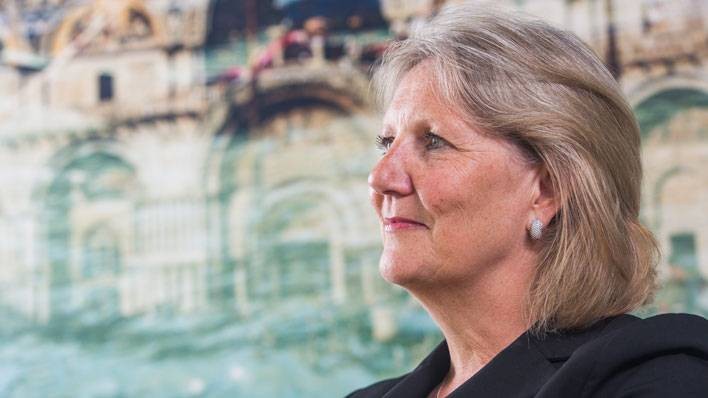
Leading Questions: Chi-chi Nwanoku
Chi-chi Nwanoku is the founder of the Chineke! Orchestra and was named ‘Person of the Year 2016’ at the Barclays-sponsored Black British Business Awards

In our regular series looking at what it takes to be a good leader, we speak to Dena Brumpton, CEO of Barclays Wealth & Investments UK.
Dena joined Barclays in 2015, continuing a high-flying, three-decade City career. We talk to her about intuition, avoiding “hiring in your own image” - and why “being yourself” is the best leadership advice.
What was your first job?
My first job was for a local newspaper, starting as a junior clerk in the accounts department. I soon realised that I was never going to be an accountant, so I needed to change course and thought about the financial services industry.
I applied for a graduate trainee course, even though I wasn’t a graduate, and I remember writing a letter saying something to the effect of “you need me, I’ll be great for your business”. They gave me the opportunity and I entered a Citibank graduate scheme in 1985.
You were at Citibank for 30 years and knew the people and the routines. Then you move to somewhere new where you’re managing people embedded in that different culture. What strategies did you have to integrate and make your mark?
I had a few months to think about how I was going to tackle the new challenge. I thought a lot about what sort of leader I wanted to be when I joined Barclays, and agonised asking myself: “Do I want to be more forceful on results? Do I want to be more embracing of talent?”. But it comes down to the fact that you can only be yourself. The authenticity you bring to a leadership role is the critical thing. As much as you want to reinvent yourself, I’m not sure it’s possible - because you have to bring all of yourself to a job like this, and unless you’re bringing your authentic self it will be insincere and you will not stay the course.
What advice would you give to those moving into leadership positions?
“Be yourself” is a huge part of it. Also, you go through different phases in your career: early on it’s all about hard work – you have to do the mileage, put in the hours and learn your craft, and become a subject matter expert. As you develop your career, it becomes about supervising and managing others, so you have to develop a different raft of skills and start introducing a greater share of judgement in your decisions - it’s not just about knowing the right answer, it’s applying judgement on top of that answer. And then it’s about learning how to lead. If you think about what leadership is, it’s about having clarity of mission and purpose, and knowing what you want your team to deliver. The best way of leading people and having people join you is to be open and transparent about the challenges, and ask them to join you on the journey.
What leadership lessons have you learned from others, in and out of business?
I’m a beg, steal, borrow, share kind of person, so I’ll take snippets from everywhere I can. There’s one experience I always remember from fairly early in my career, working with a typical trader-type who would spend all day every day taking decisions. The best thing I learned from him was there’s no such thing as a bad decision, just another decision. You’ve got to cut your losses and move on if things aren’t going to plan. Be prepared to listen and adapt. Don’t hold entrenched positions.
What have you learned from people who work for you?
I learn something every day from my team. It would be really arrogant for me to say that I know more than anyone else in the business on every topic that I manage, and of course the higher you get up the chain the less likely you are to know every nuance and detail. My managerial style is very transparent, and I’m never afraid to ask the dumb question or to answer a question with, “I don’t know that, but I know somebody who does, or I can find out,” and that’s part of having a good team: making sure everyone knows their position on the field and trusts their colleagues to deliver their component parts.
When you hire at leadership level, what specific talents do you look for?
What you try not to do is hire in your own image. We’re attracted to people like ourselves, but the risk of that is you end up with groupthink, which is never helpful to any organisation. So I look for cultural alignment with the organisation: someone who is going to be able to fit in and navigate the company. Then I look for someone who has a good vision for the business and who can clearly articulate that strategy. Unless you have that articulation, how can you ask people to follow you on that journey?
If you think about what leadership is, it’s about having clarity of mission and purpose, and knowing what you want your team to deliver. The best way of leading people and having people join you is to be open and transparent about the challenges, and ask them to join you on the journey.
"I have two young children. They’re my relaxation, so my “relaxation” tends to be frenetic, but it’s a different stimulus."
What challenges have you had as a woman rising to the top in the banking world?
I’ve grown up in a massively transitional era for women. If you look at the last century, there’s been a huge amount of heavy lifting that’s been done by my generation and the generation before me.
We’re not there yet in terms of complete diversity and equality, but there’s real motivation from all parties to get there. I think by the time my daughter enters the workplace it’ll be an easier journey again. You just have to take it as any other challenge and confront it.
Do you read management books, or do you just do it as you see it?
I do it as I see it. I’m a very intuitive person, so I tend to start off with how I feel about something and if it doesn’t feel right there’s usually no amount of analysis that will get me there. However, if it feels right I will try to back that up with data.
How important to you is the work/life balance?
Massively important. If you look at the demographic of this country, longevity is increasing, the birth rate is getting lower, people are going to be working for a long, long time, so we’ve got to feel comfortable about managing that work/life balance. That balance is different for every individual, but I think I’ve got it.
How do you unwind?
I have two young children. They’re my relaxation, so my “relaxation” tends to be frenetic, but it’s a different stimulus. Also I ride horses, and when you’re riding a horse you can’t think about the office too much.
What was your best day at work?
Tomorrow.

Chi-chi Nwanoku is the founder of the Chineke! Orchestra and was named ‘Person of the Year 2016’ at the Barclays-sponsored Black British Business Awards

Baroness Karren Brady has spent more than two decades in Premier League football

Anna Kessel is a sports journalist and the Chair and Co-founder of Women in Football

Ian Rand left the British Army in 2000 to move into banking and joined Barclays as COO for Coverage in 2008, before becoming CEO for Business Banking in spring 2016
